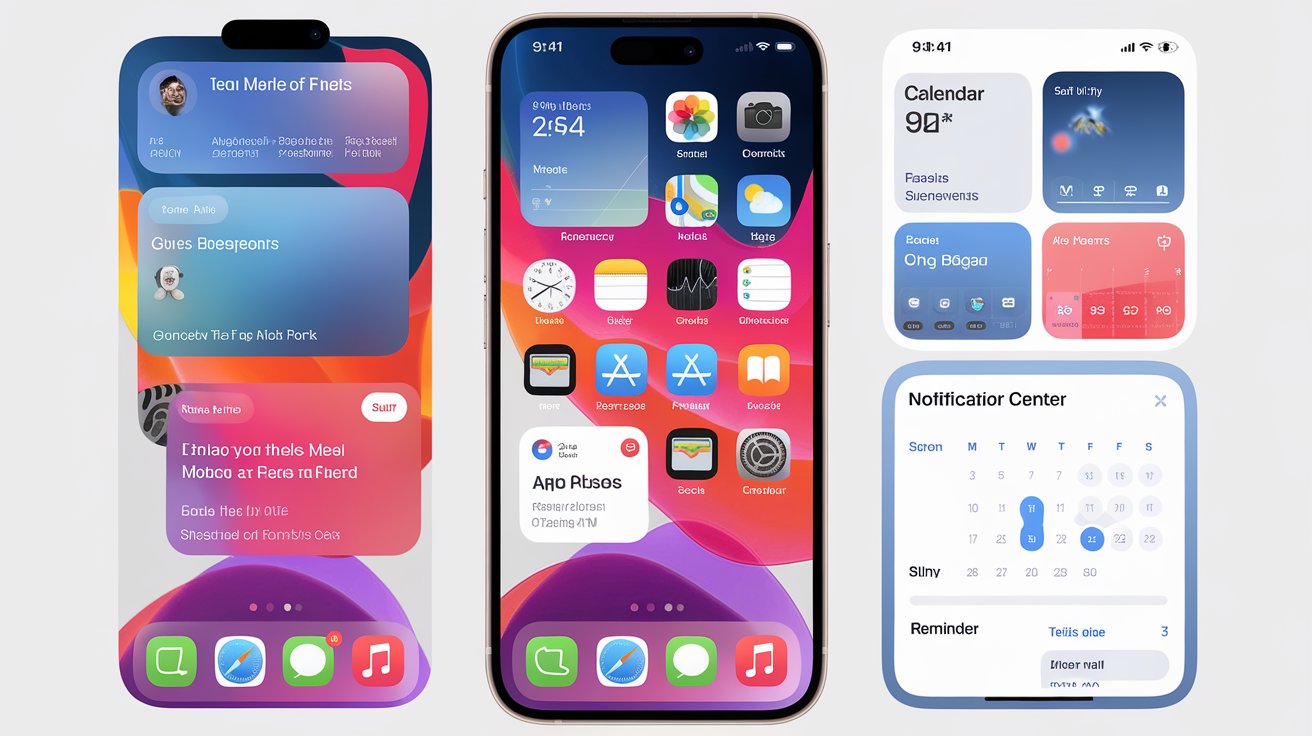Quantum computing sounds like something straight out of a sci-fi movie, right? But it’s not just a futuristic fantasy anymore; it’s becoming a reality, thanks to the cloud. Let’s dive into the world of cloud-based quantum computing, where the mind-boggling principles of quantum mechanics meet the convenience of cloud technology.
What is Quantum Computing?
Quantum computing is a type of computing that leverages the principles of quantum mechanics to process information. Unlike classical computers that use bits as the smallest unit of data, quantum computers use qubits. This fundamental difference enables quantum computers to solve complex problems much faster than their classical counterparts.
Evolution from Classical to Quantum Computing
Classical computing has served us well for decades, powering everything from our smartphones to supercomputers. However, as we encounter more complex problems, the limitations of classical computing become evident. Quantum computing represents the next leap in computational power, promising to tackle problems that are currently unsolvable.
Emergence of Cloud-Based Solutions
With the advent of cloud technology, quantum computing has become more accessible. Cloud-based quantum computing allows users to access quantum computers remotely, without the need for specialized hardware. This democratizes access to quantum computing, enabling more people to experiment and innovate.
Understanding Quantum Computing
To truly appreciate cloud-based quantum computing, we need to understand the basics of quantum mechanics and how they apply to computing.
Basics of Quantum Mechanics
Quantum mechanics is the branch of physics that deals with the behavior of particles on a very small scale – atoms and subatomic particles. It’s a realm where particles can exist in multiple states simultaneously, a phenomenon known as superposition.
Qubits vs. Classical Bits
In classical computing, a bit is the basic unit of information and can be either 0 or 1. In quantum computing, a qubit can be both 0 and 1 at the same time, thanks to superposition. This allows quantum computers to process a vast amount of information simultaneously.
Quantum Entanglement and Superposition
Quantum entanglement is another mind-bending concept where particles become interconnected and the state of one instantly influences the state of another, no matter the distance between them. This, combined with superposition, gives quantum computers their incredible processing power.
The Need for Cloud-Based Quantum Computing
Why do we need quantum computing in the cloud? Let’s explore the reasons.
Limitations of Classical Computing
Classical computers struggle with problems involving vast amounts of data and complex calculations, such as climate modeling, financial simulations, and cryptography. Quantum computing, with its superior processing power, can tackle these challenges more effectively.
Complex Problems Solved by Quantum Computing
Quantum computers can solve optimization problems, simulate molecular structures for drug discovery, and improve machine-learning algorithms. These are tasks that would take classical computers years, if not longer, to solve.
Accessibility and Cost-Effectiveness
Quantum computers are expensive and require specialized environments to operate. Cloud-based solutions make quantum computing accessible to researchers, developers, and businesses without the hefty price tag of owning quantum hardware.
How Cloud-Based Quantum Computing Works

How does it all work? Let’s break it down.
Quantum Computers in the Cloud
Companies like IBM, Google, and Microsoft host quantum computers in their data centers. Users can access these powerful machines via the internet, using cloud platforms that provide the necessary tools and interfaces.
Quantum Algorithms and Programming
Programming quantum computers requires a different approach compared to classical computers. Quantum algorithms leverage the principles of superposition and entanglement to solve problems more efficiently. Platforms like Qiskit, Cirq, and Azure Quantum provide the tools to develop and run these algorithms.
Quantum as a Service (QaaS)
Quantum as a Service (QaaS) is a model where users pay for quantum computing resources on a pay-as-you-go basis. This makes it easier for businesses and researchers to experiment with quantum computing without a large upfront investment.
Major Players in Cloud-Based Quantum Computing
Several companies are leading the charge in cloud-based quantum computing. Let’s take a closer look.
IBM Quantum Experience
IBM has been a pioneer in quantum computing, offering the IBM Quantum Experience. This platform provides access to IBM’s quantum computers, along with a suite of tools for developing and testing quantum algorithms.
Google Quantum AI
Google’s Quantum AI division is focused on advancing quantum computing technology. Their quantum computers are accessible through the cloud, providing researchers and developers with powerful resources.
Microsoft Azure Quantum
Microsoft’s Azure Quantum offers a comprehensive platform for quantum computing. It integrates with Azure’s cloud services, providing a seamless experience for users.
Other Notable Providers
Other companies, such as Rigetti Computing and D-Wave Systems, also offer cloud-based quantum computing services. Each provider has its own unique strengths and offerings, contributing to a diverse ecosystem.
Benefits of Cloud-Based Quantum Computing
What makes cloud-based quantum computing so appealing? Here are some key benefits.
Scalability and Flexibility
Cloud-based solutions are inherently scalable. Users can access more quantum resources as needed, making it easier to handle large-scale computations.
Collaboration and Resource Sharing
Cloud platforms facilitate collaboration by allowing multiple users to access the same quantum resources. This promotes the sharing of knowledge and resources, accelerating innovation.
Rapid Experimentation and Development
With cloud-based quantum computing, researchers and developers can quickly test and refine their algorithms. This rapid experimentation is crucial for advancing the field.
Challenges and Limitations
Of course, there are challenges to overcome.
Technical Challenges
Quantum computing is still in its early stages, with many technical hurdles to address. These include error rates, qubit stability, and scalability.
Security Concerns
Storing and processing data on remote quantum computers raises security concerns. Ensuring the integrity and confidentiality of data is paramount.
High Costs of Quantum Hardware
Quantum hardware is expensive to develop and maintain. While cloud-based solutions mitigate some of these costs, the overall expense remains high.
Real-World Applications

Let’s explore some exciting real-world applications of quantum computing.
Drug Discovery and Healthcare
Quantum computing can simulate molecular structures, accelerating drug discovery and development. This could lead to breakthroughs in treating diseases.
Financial Modeling
Quantum algorithms can optimize financial models, leading to better investment strategies and risk management.
Cryptography and Cybersecurity
Quantum computing has the potential to break current encryption methods but also offers new ways to secure data.
Artificial Intelligence and Machine Learning
Quantum computing can enhance machine learning algorithms, making AI systems more powerful and efficient.
Future of Cloud-Based Quantum Computing
What does the future hold for this exciting field?
Expected Technological Advancements
We can expect continued advancements in quantum hardware and algorithms, improving performance and scalability.
Potential Societal Impact
Quantum computing could revolutionize industries, from healthcare to finance, bringing significant societal benefits.
Predictions and Speculations
While it’s difficult to predict exactly how quantum computing will evolve, it’s clear that it will play a major role in shaping the future of technology.
Conclusion:
Cloud-based quantum computing is opening new frontiers in computational power and problem-solving. By making quantum resources accessible to a broader audience, it accelerates innovation and paves the way for groundbreaking discoveries. While challenges remain, the potential benefits are immense, making it an exciting field to watch.
Frequently Asked Questions
What is the difference between classical and quantum computing?
Classical computing uses bits that represent 0 or 1, while quantum computing uses qubits that can represent both 0 and 1 simultaneously, enabling faster and more complex computations.
How can quantum computing benefit businesses?
Quantum computing can optimize complex processes, improve machine learning models, enhance security, and accelerate research and development, providing a competitive edge to businesses.
What are the main security concerns with cloud-based quantum computing?
Security concerns include data integrity and confidentiality, as sensitive information is processed and stored on remote quantum computers.
Are there any current limitations to quantum computing?
Current limitations include technical challenges such as error rates, qubit stability, and the high costs associated with quantum hardware.
How can I get started with cloud-based quantum computing?
You can get started by exploring platforms like IBM Quantum Experience, Google Quantum AI, and Microsoft Azure Quantum, which offer tools and resources for learning and experimenting with quantum computing.






